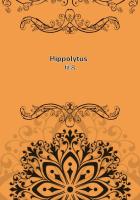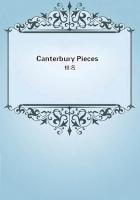That's poor for him. He takes his meals at cabmen's shelters and at Lockhart's, and he's been doing so for a month."Helen recalled with a guilty thrill the receipt of certain boxes of La France roses--cut long, in the American fashion--which had arrived within the last month at various country houses. She felt indignant at herself, and miserable. Her indignation was largely due to the recollection that she had given these flowers to her hostess to decorate the dinner-table.
She hated to ask this girl of things which she should have known better than any one else. But she forced herself to do it. She felt she must know certainly and at once.
"How do you know this?" she asked. "Are you sure there is no mistake?""He told me himself," said Marion, "when he talked of letting the plays go and returning to America. He said he must go back;that his money was gone."
"He is gone to America!" Helen said, blankly.
"No, he wanted to go, but I wouldn't let him," Marion went on.
"I told him that some one might take his play any day. And this third one he has written, the one he finished this summer in town, is the best of all, I think. It's a love-story. It's quite beautiful." She turned and arranged her veil at the glass, and as she did so, her eyes fell on the photographs of herself scattered over the mantelpiece, and she smiled slightly. But Helen did not see her--she was sitting down now, pulling at the books on the table. She was confused and disturbed by emotions which were quite strange to her, and when Marion bade her good-by she hardly noticed her departure. What impressed her most of all in what Marion had told her, was, she was surprised to find, that Philip was going away. That she herself had frequently urged him to do so, for his own peace of mind, seemed now of no consequence. Now that he seriously contemplated it, she recognized that his absence meant to her a change in everything. She felt for the first time the peculiar place he held in her life. Even if she had seen him but seldom, the fact that he was within call had been more of a comfort and a necessity to her than she understood.
That he was poor, concerned her chiefly because she knew that, although this condition could only be but temporary, it would distress him not to have his friends around him, and to entertain them as he had been used to do. She wondered eagerly if she might offer to help him, but a second thought assured her that, for a man, that sort of help from a woman was impossible.
She resented the fact that Marion was deep in his confidence;that it was Marion who had told her of his changed condition and of his plans. It annoyed her so acutely that she could not remain in the room where she had seen her so complacently in possession. And after leaving a brief note for Philip, she went away. She stopped a hansom at the door, and told the man to drive along the Embankment--she wanted to be quite alone, and she felt she could see no one until she had thought it all out, and had analyzed the new feelings.
So for several hours she drove slowly up and down, sunk far back in the cushions of the cab, and staring with unseeing eyes at the white enamelled tariff and the black dash-board.
She assured herself that she was not jealous of Marion, because, in order to be jealous, she first would have to care for Philip in the very way she could not bring herself to do.
She decided that his interest in Marion hurt her, because it showed that Philip was not capable of remaining true to the one ideal of his life. She was sure that this explained her feelings--she was disappointed that he had not kept up to his own standard; that he was weak enough to turn aside from it for the first pretty pair of eyes. But she was too honest and too just to accept that diagnosis of her feelings as final--she knew there had been many pairs of eyes in America and in London, and that though Philip had seen them, he had not answered them when they spoke. No, she confessed frankly, she was hurt with herself for neglecting her old friend so selfishly and for so long a time; his love gave him claims on her consideration, at least, and she had forgotten that and him, and had run after strange gods and allowed others to come in and take her place, and to give him the sympathy and help which she should have been the first to offer, and which would have counted more when coming from her than from any one else. She determined to make amends at once for her thoughtlessness and selfishness, and her brain was pleasantly occupied with plans and acts of kindness. It was a new entertainment, and she found she delighted in it. She directed the cabman to go to Solomons's, and from there sent Philip a bunch of flowers and a line saying that on the following day she was coming to take tea with him. She had a guilty feeling that he might consider her friendly advances more seriously than she meant them, but it was her pleasure to be reckless: her feelings were running riotously, and the sensation was so new that she refused to be circumspect or to consider consequences. Who could tell, she asked herself with a quick, frightened gasp, but that, after all, it might be that she was learning to care? From Solomons's she bade the man drive to the shop in Cranbourne Street where she was accustomed to purchase the materials she used in painting, and Fate, which uses strange agents to work out its ends, so directed it that the cabman stopped a few doors below this shop, and opposite one where jewelry and other personal effects were bought and sold.
At any other time, or had she been in any other mood, what followed might not have occurred, but Fate, in the person of the cabman, arranged it so that the hour and the opportunity came together.















